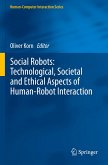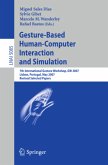This book presents lectures given at the 8th International Workshop on Spoken Dialog Systems. As agents evolve in terms of their ability to carry on a dialog with users, several qualities are emerging as essential components of a successful system. Users do not carry on long conversations on only one topic-they tend to switch between several topics. Thus the authors are observing the emergence of multi-domain systems that enable users to seamlessly hop from one domain to another. The systems have become active social partners. Accordingly, work on social dialog has become crucial to active and engaging human-robot/agent interaction.
These new systems call for a coherent framework that guides their actions as chatbots and conversational agents. Human-Robot/Agent assessment mechanisms naturally lend themselves to this task. As these systems increasingly assist humans in a multitude of tasks, the ethics of their existence, their design and their interaction with users are becoming crucial issues. This book discusses the essential players and features involved, such as chat-based agents, multi-domain dialog systems, human-robot interaction, social dialog policy, and advanced dialog system architectures.
These new systems call for a coherent framework that guides their actions as chatbots and conversational agents. Human-Robot/Agent assessment mechanisms naturally lend themselves to this task. As these systems increasingly assist humans in a multitude of tasks, the ethics of their existence, their design and their interaction with users are becoming crucial issues. This book discusses the essential players and features involved, such as chat-based agents, multi-domain dialog systems, human-robot interaction, social dialog policy, and advanced dialog system architectures.








